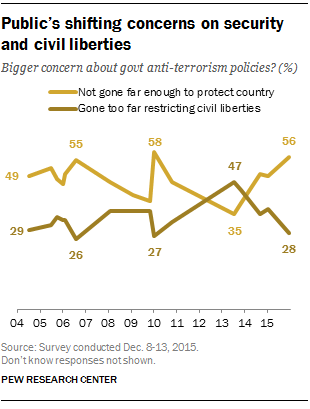US citizens did what its founder, Ben Franklin, warned never to do — exchange freedom for security.
War
9/11 was followed by an intense national campaign to expand Presidential military powers, in order to protect the US from terrorism. The Iraq war, which started with an alarming pre-emptive carpet bombing, under false pretenses, was one of the immediate consequences.Pre-emptive war is considered illegal under international law, but became a US strategy after 9/11, threatening other countries since, like Iran and North Korea.
The US was infamously willing to ‘go it alone’ in Iraq, against the international community. Today, echoes of US isolationism remain, with frequent challenges to the UN and NATO as legitimate factors in US policies.
After 9/11, the US used torture, and unmanned drones, under seemingly endless executive military power. These tactics plague the US’s image, and erode US moral authority around the globe.
Collectively, changes in ways in which the US runs its war efforts after 9/11/2001 have greatly expanded executive powers to unilaterally, and aggressively, carry out its military agenda, under a constant impending threat of terrorism.
Civilian deaths in the US’s Wars on Terror have ballooned to over 1 million, according to a report authored in partnership with Physicians for Social Responsibility, and show no signs of stopping.
Laws
Several post 9/11 laws have enabled the executive branch to, not only target foreigners with overarching new powers, but also the American people.Since 2001, law authorized under the National Defense Authorization Act (NDAA), specifically the Authorization for Use of Military Force (AUMF), has given the executive branch its expanded military powers to target anyone, or anything, it can connect to ‘terrorism.’
The Uniting and Strengthening America by Providing Appropriate Tools Required to Intercept and Obstruct Terrorism Act of 2001 (US Patriot Act), passed with remarkable speed after 9/11. It gave the executive branch confidence to use broad powers to interpret who or what it might label a ‘terrorist,’ foreign or domestic.
The Patriot Act is aided by the FISA Amendment Act of 2008, which gave immunity to companies that comply with government requests for the people’s information.
The USA Freedom Act, passed in 2015, reigned in some of the abuses, but there is still a long way to go to restore legal integrity of US citizen’s constitutional rights, according to civil liberty groups like the EFF and ACLU.
Laws enacted as emergency responses to 9/11 have significantly eroded 1st and 4th amendment rights to free speech, freedom of association, privacy, and due process.
Culture
None of these changes could have taken place without a significant change in culture. Fear was not just a natural phenomenon, as a response to the unimaginable sight of the Twin Towers cascading in free fall in the middle of New York City. It was sustained by the Bush Administration, which vilified dissent, reminded US citizens of their insecurity daily, and instituted a super-patriotism that pulses through America still.“If you’re not with us, you’re against us” became America’s new slogan. It did not only apply to foreigners, it applied to anyone who criticized the Bush administration, and specifically, the War on Terror. Those who criticized the Bush administration were increasing called ‘un-American’ and ‘with the terrorists,’ climaxing in Michelle Bachman’s calls, in 2008, for an inquiry into ‘liberal’ congress members who might hold ‘un-American’ views.
If you were politically aware around 2001, you might remember American flags everywhere, from the new FOX News logo, to its ubiquitous use in advertising. It was the visual precursor to the chants of “USA! USA!” we hear in populist crowds all over the country.
It’s no wonder Americans of all sorts feel threatened, and a need for protection against some ‘enemy.’ But, who is the ‘enemy’? Islamic terrorists who hate freedom, or fellow citizens willing to sacrifice freedom for protection?
Whose freedoms are being sacrificed? Protection against what? The answers are not clear.
A Nation of Fear
Immediately after 9/11, 60% of Americans in a Pew Research poll were OK with trading civil liberties for security, under the threat of terrorism. That number bounces up and down dependent largely on how fearful the public is:America has been a culture of fear since 9/11. In such a whirlwind -- trying to protect itself against an always imminent, un-American terror -- that delineating ‘who is us and who is them,’ and ‘what is American,‘ has proved illusive.
If you ponder how we got here, take a closer look at how 9/11 has changed US war, laws, and culture.
